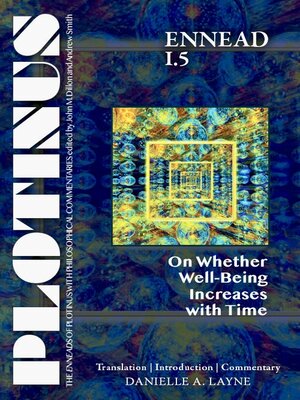PLOTINUS Ennead I.5: On Whether Well-Being Increases with Time
ebook ∣ Translation, with an Introduction, and Commentary · The Enneads of Plotinus
By Danielle A. Layne

Sign up to save your library
With an OverDrive account, you can save your favorite libraries for at-a-glance information about availability. Find out more about OverDrive accounts.
Find this title in Libby, the library reading app by OverDrive.



Search for a digital library with this title
Title found at these libraries:
| Library Name | Distance |
|---|---|
| Loading... |
In Ennead I.5 Plotinus attempts to navigate a well-trodden path of inquiry by directly responding to a wide spectrum of popular theories on human flourishing, and insisting emphatically that well-being belongs to the present moment. Indeed, Aristotle—with his insistence that well-being be measured by "a complete life" (Nicomachean Ethics 1098a16–20) or a life measured by virtue, a modus vivendi sustained via the development of appropriate habits (hexis) and the avoidance of misfortunes—is one of Plotinus' central targets. Nevertheless, it is also obvious that the Hellenistic schools, with their almost evangelical insistence that happiness is available to practitioners in the immediacy of the "now," take pride of place in Plotinus' short treatise on the subject. Layne analyzes in depth Plotinus' unique conception of the value of the present moment by highlighting his dialogue with Aristotle and Hellenistic conceptions of the soul, pleasure and pain, time and eternity, and so forth.







